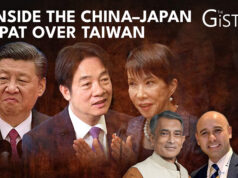As Japan grapples with an ageing population, economic stagnation, and rising living costs, anti-immigration sentiment has increasingly found a place in national political debates. Concerns over shrinking workforces and social instability have fueled anxiety about foreign influence, shaping both policy and public discourse.
Amidst this, the Sanseito party, led by Sohei Kamiya gained a lot of traction on the political sphere. The party propagates a ‘Japanese First’ agenda that rejects large scale immigration with emphasis on tough restrictions on foreign workers and promoting traditional family values.
In July 2025 upper house elections, the far-right Sanseito party significantly increased representation from one seat to 15 in the 248-member chamber, resonating with the wider pool of voters.
Japan’s outgoing Prime Minister Shigeru Ishiba’s plan to bring in foreign skilled workers has drawn sharp criticism amid growing concerns over an economic slowdown, as Japan’s shrinking population struggles with growing social and economic instability.
Japan saw a surge in anti-immigration protests when Japan International Cooperation Agency (JICA) announced that it has designated four Japanese cities as ‘home towns’ for African countries. The poorly communicated initiative, intended to strengthen the friendly ties between two nations met with backlash highlighting the xenophobia simmering among the Japanese people amidst the anxiety of the future.
The same fears extend to security and foreign presence. Okinawa prefecture, home to the largest concentration of US military bases in Japan, has long been a focal point of local protests and national debates over the American military presence.
The protests against the Japan–US military drills in Okinawa reflect the same anxieties that fuel anti-immigration sentiment across the country. People fear that foreign influence, whether through workers or troops, could disrupt national security and social stability.
Japanese people have also expressed frustration over misbehaving tourists who disregard local customs and cultural values, further intensifying apprehension about outsiders and feeding into the broader anti-immigration sentiment.
Japan’s political landscape is shifting. Where immigration was once a marginal issue, it now takes the front-row space in national debates. Yet, with an aging population and declining birth rate, the country must walk a tightrope in managing its approach.





